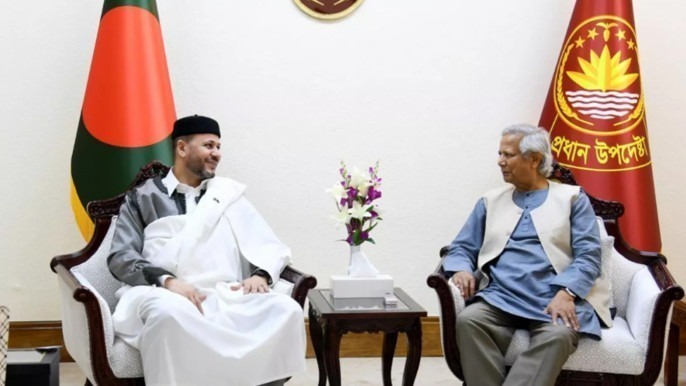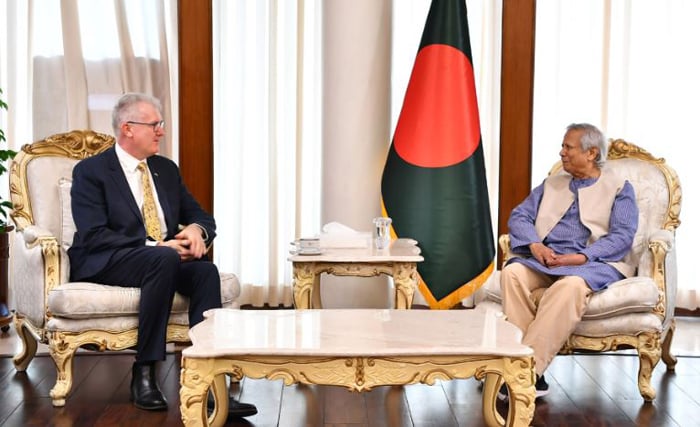Higher remittance makes only difference

The higher inflow of remittance on the back of a slim export growth is the major exception amid deterioration of other major economic indicators during the first quarter of the current financial year marked by the historic regime change.
Economists observe that the incumbent interim government led by Nobel laureate professor Muhammad Yunus is facing trying times in taming the prolonged high inflation and bringing back economy on track after assuming power at a critical juncture marked by the faltering growth in gross domestic product at 3.91 per cent in the April–June quarter of FY24.
The April–June growth rate was the lowest in the past five quarters due to late contractionary monetary policy adoption following the implementation of flawed and expansionary policies for years by the Sheikh Hasina-led Awami League regime ousted amid a student-led mass uprising on August 5.
With the interim government struggling to stabilise the law and order and the civil administration, the higher flow of remittance registering 38 per cent growth in August, and 80 per cent growth in September on a year-on-year basis brought some relief for the government.
Besides, a 5.04 per cent growth on export earnings in the first quarter—July–September period—of FY25 from 4.34 per cent negative growth in FY24 reduced pressure on forex reserves hovering around $20 billion and also on the current account balance.
But hardly any improvement has been recorded in the sluggish imports of consumer goods, capital machinery and intermediate goods, according to the ‘Weekly selected economic indicators’ released by Bangladesh Bank on October 31.
In the July–September period, the import of consumer goods decreased by 17 per cent compared with the same period of FY24; the import of capital goods saw a decrease by 24 per cent; and intermediate goods by 13.38 per cent. The scenario signals inertia in fresh business investments amid the ongoing political uncertainty and shortage of energy and power, observes former World Bank Dhaka office chief economist Zahid Hussain.
The change is huge, he continues, and has shaken the crucial baking sector following revamping of a dozen of banks’ boards, including the largest private commercial bank, Islami Bank Bangladesh Limited, securing their control from the S Alam Group, one of the most closest cronies of the previous Awami League regime.
Leakages from the banking sector have been checked, but the interim government still faces challenges to bring back the overall economy on track, according to Zahid Hussain.
Echoing Zahid, the Institute for Inclusive Finance and Development executive director Mustafa K Mujeri said that average inflation remained high at around 10 per cent in the past three months.
The interim government has cut import duties on essential goods, including main staple rice, to 25 per cent from previous 62 per cent after flash floods and massive rain in August–September affecting the cultivation of Aman, country’s second largest rice crop.
The supply situation needed improvement by removing others barriers, including extortions, MK Mujeri stressed.
To check the persistent high inflation, the central bank is also tightening the flow of money by raising interest rates, which according to businesses, discouraging for investment and private sector employment.
In October, the general inflation returned to double digit at 10.87 per cent, after it somewhat eased in September, which was 9.92 per cent.
The October food inflation recorded at 12.66 per cent by the Bangladesh Bureau of Statistics was the main factor behind that month’s rise in general inflation.
Inflation that has been prevailing at a decade-high since 2023 had hit 11.27 per cent in July, and was recorded at 10.49 per cent in August when the interim government assumed power after the fall of the Awami regime.
The private sector credit growth in the country already dropped to 9.86 per cent in August from 10.13 per cent in July amid turmoil in the banking sector and business environment.
The ‘Bangladesh Development Update’ released by the World Bank in the past month viewed that factors, including inflation, external pressure, financial sector vulnerabilities, and political uncertainty, would continue to put pressure on the country’s economy in the current FY25.
The finance ministry is mulling to cut the overall national budget of FY25 by around Tk 70,000 crore, mainly from the development allocations to offset possible revenue losses.
The National Board of Revenue’s income in the July–September of FY25 recorded 6 per cent negative compared with the income during the same period of FY24.
M Masrur Reaz, chairman and chief executive officer of think tank Policy Exchange Bangladesh, said that the foreign direct investment, export and small and medium entrepreneurs should get equal priority from the interim government.
Confidence of foreign investors needed worked upon since the foreign direct investment hit 8.80 per cent negative in FY24 from that in FY23, he said.
Besides, efforts were urgent to check factory unrest to increase the export growth, while support should be given to the small and medium entrepreneurs accounting for at least one fourth of the country’s GDP.
Source: New Age | 9 November 2024 | Author: Shakhawat Hossain






